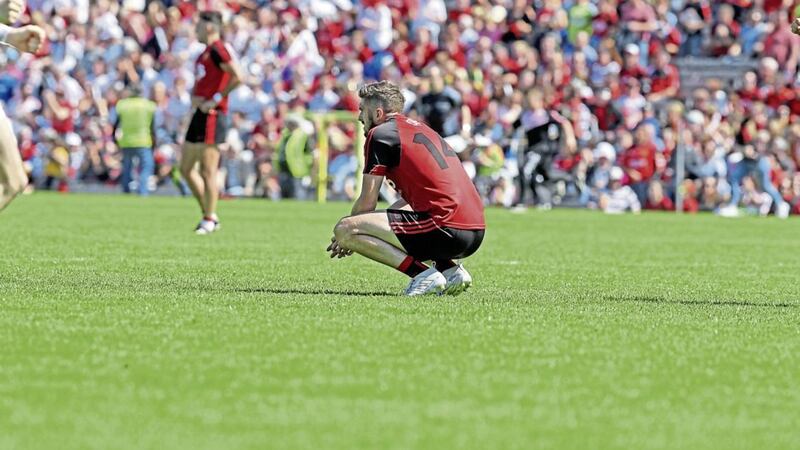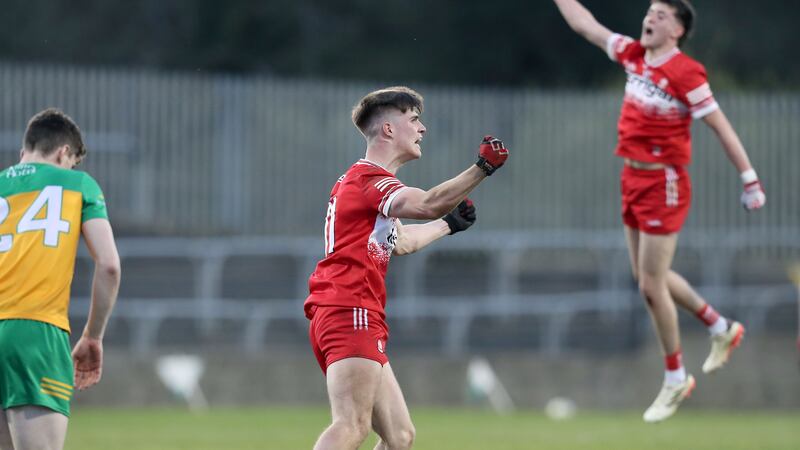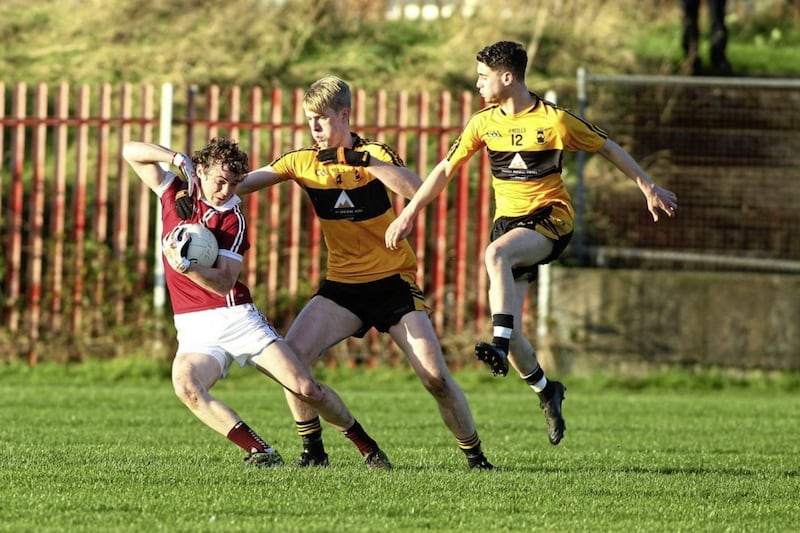THE Qualifier system has been hugely rewarding for many teams who’ve grabbed the opportunity for more competitive matches, often against teams of similar ability.
Had the GAA persevered with the old format, supporters of the weaker counties would get one annual trip to a neighbouring county with little more than the prospect of a big beating.
The Qualifiers afford teams the opportunity to nurture talent and hone a system of play within one year rather than over three years and to play competitive football into mid- and late-July. Small
wins can develop into large gains.
Since the introduction of the Qualifiers in 2001, the beaten provincial finalists have always struggled to make an impact. There is a simple reason for this.
They are entering the Qualifiers at round four to meet the best teams remaining who were in all likelihood caught on the hop in their provincial first round or quarter-final, but who have regrouped and gathered momentum.
On one side you have a team physically exhausted and mentally drained from their endeavours to win a provincial crown, while on the other there is a team revitalised, full of belief and in peak condition for the challenge ahead.
The GAA did, at least, increase the rest period between the provincial final and the last 16 to two weeks from six days but the advantage remains with the Qualifier team. The cream always rises to the top when given a second chance.
Armagh exited the Ulster Championship on June 4. They were rank against Fermanagh two weeks later, marginally better against Westmeath thereafter but they’ve got to grips with things against Tipperary and they now face an exciting but wounded Kildare team.
Similarly with Monaghan, they were uninspiring against an ailing Wexford and rancid against Carlow but they have been tested and survived.
Donegal needed the extra games against Longford and Meath to instil belief and experience. No-one will want to play Donegal. All three Ulster teams are in a better place than they were when they exited the provincial Championship.
Supporters think differently about the Qualifiers at this time of year. They assume their team will recover from the provincial final and that they are better than the opponent, who they may have beaten six or eight weeks previously. Sometimes players can think this way too.
The GAA needs to bring balance to the Qualifiers so that the beaten provincial finalists are less disadvantaged.
One possible solution is to have the beaten finalists play against each other. In this way, they are pitted against opponents trying to overcome similar issues in a game which offers the opportunity for a mental reset and a much-needed boost.
In the other half of the draw, the round 3A and round 3B teams would enter a fully open draw in which any of the four teams would potentially play each other. Currently, they remain separate until the semi-final stage.
This weekend Mayo and Donegal play Cork and Galway respectively. I expect Cork to be in a better place mentally than Galway given their aim for 2017 is to reach the last four stage rather than to win Munster.
Galway were odds-on to win Connacht but found the youth and exuberance of Roscommon too hot to handle. That was a tough lesson which will take longer than two weeks to digest. The trend of beaten finalists stumbling out through the back door is set to continue.
* I AM bewildered that Pete McGrath has been pushed out of his post as Fermanagh manager. This is a man whose track record is among the best in the land: Five Hogan Cups, the All-Ireland minor title in 1987, All-Ireland senior titles in 1991 and 1994 and, more recently, guiding Down to the All-Ireland U21 final in 2009 having also managed his country in the International Rules series in 2004 and 2005.
I can assure you that Pete’s only motivation for working with Fermanagh was to make them the best that they can be.
OK, Fermanagh haven’t won an Ulster title during his tenure but it is apparent to all that they punched way above their weight under his guidance. There is no shame in that.
Fermanagh were never serious contenders – no right-thinking analyst would tip them to overcome six or possibly seven Ulster teams in the heat of Championship battle.
Yet under Pete’s direction they became difficult to beat, they were competitive and they were interesting to watch.
I played university football alongside Pete’s trusted lieutenant Raymond Johnston. He is a great guy, a gentleman and a true Fermanagh Gael. My disappointment extends to Raymond so I wish both him and Pete well in their next venture.







